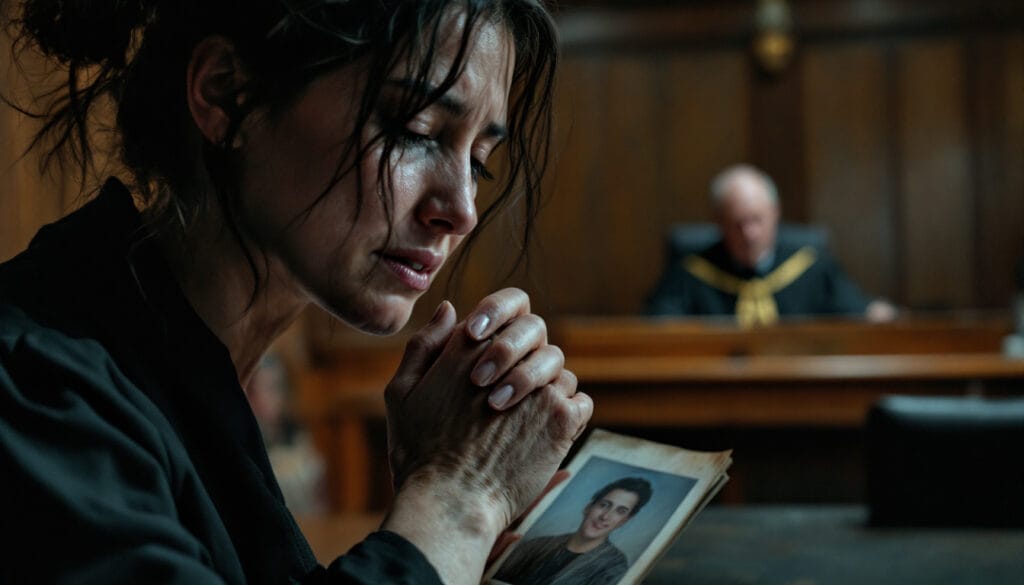tag:“An unbearable drama”: the trial of the loved ones of a motorcyclist victim of a reckless driver

Life can change in an instant. For the loved ones of a motorcyclist who is a victim of a tragic accident caused by a reckless driver, the shadow of suffering exceeds that of sorrow. The court becomes the place where justice and injustice intertwine, where victims and their families seek redress. When pain is coupled with the quest for justice, everyone must mobilize to understand the mechanisms at play. The consequences of these events transcend the legal framework, affecting the mental and emotional health of the bereaved.
The legal journey of the loved ones of motorcycle accident victims
The loved ones of a motorcycle accident victim, such as a motorcyclist struck by a reckless driver, undergo a trial that often begins with a traumatic shock. In 2025, the legal framework surrounding road accidents has evolved, but the pain of families remains ever-present. When the necessity of going to court arises, the complexity of the judicial mechanism can become a new obstacle to healing.
The legal journey is often fraught with pitfalls. Once the initial days after the accident pass, the loved ones must face a multitude of decisions and steps. First and foremost, it is crucial to gather evidence of the accident. This includes police reports, testimonies, and all practices that help determine the liability of the reckless driver. It is a heavy burden to manage at this stage, while the pain of loss is still very fresh.
Once liability is established, the time for court proceedings begins. Families often must follow a compensation process, but for that, they must prove the damage suffered. This can lead to disputes over victims' rights and compensation. Sometimes, insurance companies, instead of being a support, become an obstacle by trying to minimize their payouts. This fight for redress turns into a true battle.
Psychological support and emotional management during the trial
It is fundamental that loved ones benefit from psychological support throughout this ordeal. The pain of a road accident is not limited to the financial or legal aspects. It also affects the morale, the psyche of family members and friends. This emotional weight can lead to disorders such as anxiety, depression, and even rage. To mitigate these impacts, several support options exist: individual therapy, support groups, or even mutual aid associations.
It is essential to consider different means to develop internal and external resources:
- Participate in support groups that share similar experiences.
- Consult psychologists specialized in grief and trauma.
- Encourage mobilization around solidarity initiatives to claim rights.
- Establish a network of family and friend support, where everyone can verbalize their emotions.
- Use stress management techniques such as meditation or yoga.
The different stages of the judicial procedure
The legal process can be lengthy and complex. In 2025, it is crucial to have a good understanding of the phases that compose it. Here is an overview of the typical stages that loved ones often have to go through:
| Stage | Description |
|---|---|
| 1. Police report | Report the accident and gather initial evidence. |
| 2. Evidence gathering | Collecting testimonies, medical reports, and photos of the scene. |
| 3. Filing a complaint | Formalizing the compensation request within a defined timeframe. |
| 4. Court hearing | Presentation of evidence and arguments before judgment. |
| 5. Court decision | The verdict on liability and possible compensation. |
At each stage, families must remain vigilant and informed, often seeking the help of lawyers specialized in victims' rights. Collaboration with experts is therefore an essential point to hope for just outcomes.
The emotional and psychological impacts on loved ones
The violence of a motorcycle accident on a loved one has significant emotional repercussions. The absence of a loved one often results in a state where despair and misunderstanding coexist. The protection of victims' rights acquires particular importance, as it offers not only acknowledgment of material wounds but also the invisible scars that reside in hearts.
The death of a motorcyclist in tragic circumstances often leaves families helpless in the face of unanswered questions. Why did this happen? How to move forward? The felt injustice only intensifies the pain. A survey conducted by psychologists showed that the loved ones of road accident victims have much higher rates of psychological suffering than the average.
Commonly felt emotions
Several emotions clash and intertwine, making understanding and managing these feelings particularly difficult. Here are some emotions that loved ones may experience:
- Shock: The initial impact of the news of the accident can be paralyzing.
- Guilt: Many wonder if they could have done something.
- Anger: Whether against the reckless driver or the situation in general.
- Sadness: The grief of a loved one is a deep and lasting pain.
- Loneliness: Feeling isolated in a suffering that seems incomprehensible to others.
These emotions can lead to a difficult spiral where the person finds themselves oscillating between acceptance and revolt. The way to transform this emotional discomfort into resilience becomes essential for moving forward.
The rights of victims and compensation
The legal framework for compensating the loved ones of accident victims is expanding significantly. In 2025, French laws have adapted to better address the concerns of grieving families. The rights of victims are now better protected and supported, thus allowing a better response not only to material losses but also to emotional damages.
In a context where every case is unique, it is important to address the different types of damages that loved ones can claim. Families fight to obtain compensation as they suffer various harms following such a tragedy. It is therefore crucial to understand what these rights are.
Types of damages often compensated
Families can assert several types of damages before the court. Here is a summary table:
| Type of damage | Description |
|---|---|
| Material damage | Compensation for direct financial losses after the accident. |
| Moral damage | Compensation for the psychological suffering endured following the death. |
| Affective damage | Recognition of the loss of emotional connection with the victim. |
| Economic damage | Compensation related to the loss of income suffered by the family. |
It is crucial that families know these rights to be able to assert them effectively. Moreover, to implement this defense of rights, the support of specialized lawyers is often essential. Their expertise will optimize the chances of obtaining fair compensations.
Solidarity and initiatives in favor of road victims
Beyond the legal framework, solidarity is essential to support the loved ones of road victims. In 2025, numerous associations have emerged, working to provide concrete and moral support to bereaved families. These movements transcend the simple administrative framework, aiming to unite and raise awareness among the general public about the dangers of the road.
These initiatives often take various forms, ranging from the simple creation of mutual aid networks to the organization of awareness events. The abrupt loss of a loved one often leads to strong engagement from relatives in prevention activities, reflecting a desire to transform their pain into positive action.
Concrete initiatives and projects
Initiatives in favor of victims are multiplying and deserve to be highlighted:
- Creation of support groups to release speech and emotional expression.
- Organization of awareness events to combat driver recklessness.
- Legal assistance and practical advice to families navigating the judicial system.
- Fundraising to support projects related to road safety.
- Partnerships between associations and institutions to strengthen the awareness of young drivers.
These actions strengthen the solidarity between victims and their loved ones, creating a space for understanding, mutual aid, and sharing of experiences. These projects are often the true driving force for change, socially and legally, leading to a collective reflection on driving practices.
Leave a Reply

Articles relatifs